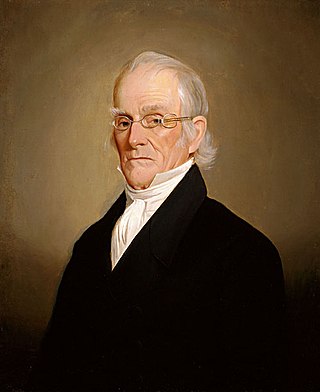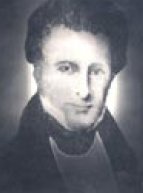Related Research Articles

Orange County is a county located in the Piedmont region of the U.S. state of North Carolina. As of the 2020 census, the population was 148,696. Its county seat is Hillsborough.

Littleton is a town in Middlesex County, Massachusetts, United States. The population was 10,141 at the 2020 census.

The town of Hillsborough is the county seat of Orange County, North Carolina, United States and is located along the Eno River. The population was 6,087 in 2010, but it grew rapidly to 9,660 by 2020.

Mebane is a city located mostly in Alamance County, North Carolina, United States, and partly in Orange County. The town was named for Alexander Mebane, an American Revolutionary War general and member of the U.S. Congress. It was incorporated as "Mebanesville" in 1881, and in 1883 the name was changed to "Mebane". It was incorporated as a city in 1987. The population as of the 2020 census was 17,768. Mebane is one of the fastest-growing municipalities in North Carolina. Mebane straddles the Research Triangle and Piedmont Triad Regions of North Carolina. The bulk of the city is in Alamance County, which comprises the Burlington Metropolitan Statistical Area, itself a component of the Greensboro-Winston-Salem-High Point Combined Statistical Area. Two slivers in the eastern portion of the city are in Orange County, which is part of the Durham-Chapel Hill Metropolitan Statistical Area, itself a component of the Raleigh-Durham-Chapel Hill Combined Statistical Area.

Nathaniel Rochester was an American Revolutionary War soldier and land speculator, most noted for founding the settlement which would become Rochester, New York.

The Catsburg Country Store was located at the junction of Old Oxford Highway and Hamlin Road in Durham County, North Carolina, sited roughly halfway between Durham and Butner, near historic Stagville Plantation.

William Peace University is a private college in Raleigh, North Carolina. Formerly affiliated with the Presbyterian Church, it offers undergraduate degrees in more than 30 majors and the School of Professional Studies (SPS) offers accelerated bachelor's degrees that are online or hybrid for working adults. The institution adopted its current name in 2012, concurrent with its decision to begin admitting men to its day program; it was previously known as Peace Institute, Peace Junior College, and Peace College.

The speaker of the North Carolina House of Representatives is the presiding officer of one of the houses of the North Carolina General Assembly. The speaker is elected by the members of the house when they first convene for their regular session, which is currently in January of each odd-numbered year. Perhaps the most important duty of the speaker is to appoint members and chairs of the various standing committees of the House.

The D. H. Hill Jr. Library is one of two main libraries at North Carolina State University. It is the third building to house the NC State University Libraries, following Brooks Hall and Holladay Hall. The current building, situated on the Hillsborough Street edge of North Campus, is the result of four stages of construction, and houses the majority of the volumes in NC State's collection.

Hillsborough Street is a business and cultural thoroughfare through Raleigh, North Carolina, United States. The street serves as a center for social life among North Carolina State University and Meredith College students.

The University of Mount Olive is a private university in Mount Olive, North Carolina. Chartered in 1951, the university is sponsored by the Original Free Will Baptist Convention and accredited by the Southern Association of Colleges and Schools Commission on Colleges. A member of the NCAA Division II Conference Carolinas, its sports teams compete as the Mount Olive Trojans.

Robert Newton Page was a U.S. Representative from North Carolina.

Edmund Charles Fox Strudwick at Long Meadows, north of Hillsborough, in Orange County, North Carolina. He eventually designed the first building at Dorothea Dix mental hospital in 1848, where he also was chosen as the first "Physician and Superintendent," a temporary position he held until 1853. He was also instrumental in the founding of the medical school at the University of North Carolina, and was elected the North Carolina Medical Society's first president April 17, 1849.
The Tampa–Hillsborough County Public Library System (THPL) is a public library system based in Hillsborough County, Florida. THPL is part of two larger library networks, the Tampa Bay Library Consortium, and the Hillsborough County Public Library Cooperative which includes Temple Terrace Public Library in Temple Terrace, Florida, and Bruton Memorial Library in Plant City, Florida. There are 33 branches of the Hillsborough County Public Library Cooperative. Services provided by the THPL include internet access, public meeting room spaces, interlibrary loans, a Bookmobile, a Cybermobile for Spanish speakers, technology classes, adult literacy programs, and downloadable eBooks. Drive-thru windows for returns and hold pick-ups are located at the Jimmie B. Keel and the Jan Kaminis Platt Regional Libraries. In 2017, THPL introduced the new HAAL Pass, which gives access to certain library resources to all students in the Hillsborough County Public Schools System. Students use their student ID number to use different online databases, borrow up to three physical items and read eBooks. The Tampa–Hillsborough County Public Library System is also a part of Hillsborough County government. On January 1, 2018, the library cooperative became one of the largest in the country to go fine free. Overdue fees for borrowed materials were eliminated with the implementation of the "Just Bring It Back" initiative. In 2019 the cooperative received the FLA Library of the Year Award. Tampa-Hillsborough County Public Library was recognized for its community focused initiatives as it "reorganized its staffing model and eliminated overdue fines, yielding $1 million in savings while increasing access to library resources and expanding opportunities for community engagement through unique, scalable programs."

North Carolina Polytechnic Academy, founded as Hillsborough Military Academy and also known as North Carolina Military Academy, was a school in Hillsborough, North Carolina. Col. Charles C. Tew CSA founded Hillsborough Military Academy. He was later killed in action at Battle of Antietam in 1862 on the eve of his promotion to brigadier general. Architect John A. Kay designed the Hillsborough Military Academy barracks building and commandant's house. Edmund Strudwick was the doctor for the Hillsborough Military Academy in the 1860s and cared for soldiers wounded in the Civil War at his home nearby.
Nelson Phillips was a justice of the Texas Supreme Court from April 1912 to November 1921, serving as chief justice from June 1915 to November 1921.

Dickerson Chapel is a historic chapel in Hillsborough, North Carolina. Built in 1790, the chapel originally served as the courthouse for Orange County until 1844. It housed a Baptist congregation from 1845 until 1862, when it was purchased by a group of Quakers to serve as a school for African-American children. Since 1886 it has housed a congregation of the African Methodist Episcopal Church.
Perry G. Wall II was an American businessman and politician in Tampa, Florida.

Lipscomb House, or Lipscombe House, is a historic Federal-style plantation house in Durham, North Carolina, United States. The Lipscomb Plantation, sitting on 2,000 acres between the Eno River and the Little River, was one of the largest forced-labor cotton farms in Durham County. The plantation was part of the Trading Path, used by Catawba and Waxhaw Native American tribes trading between Petersburg, Virginia, and Hillsborough, North Carolina. The house is now run as a bed and breakfast.

Benjamin Franklin Mebane Jr. was an American industrialist.
References
- 1 2 3 "ID: G-37, HILLSBOROUGH ACADEMY". North Carolina Highway Historical Marker Program. North Carolina Department of Cultural Resources. 2009. Archived from the original on 2013-07-23. Retrieved June 3, 2020.
- ↑ "Collection Number: 03730-z, Collection Title: Bingham Military School Volumes, 1872-1876; 1890-1919". The Southern Historical Collection at the Louis Round Wilson Special Collections Library. University of North Carolina at Chapel Hill. August 2006. Archived from the original on 2001-07-19. Retrieved June 3, 2020.